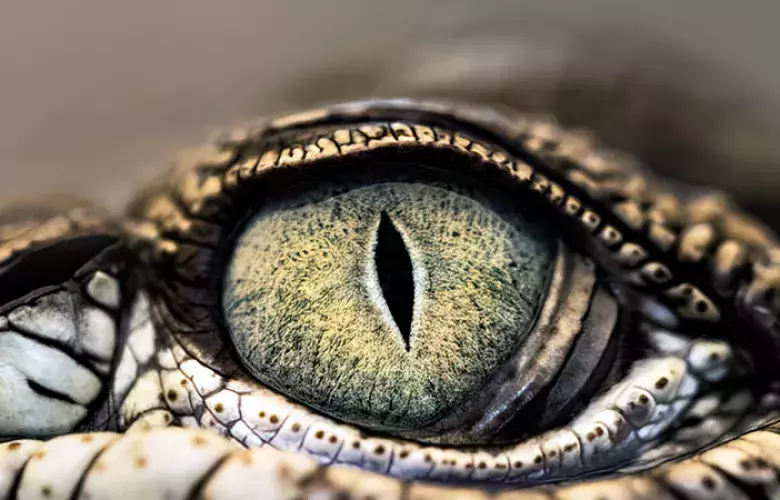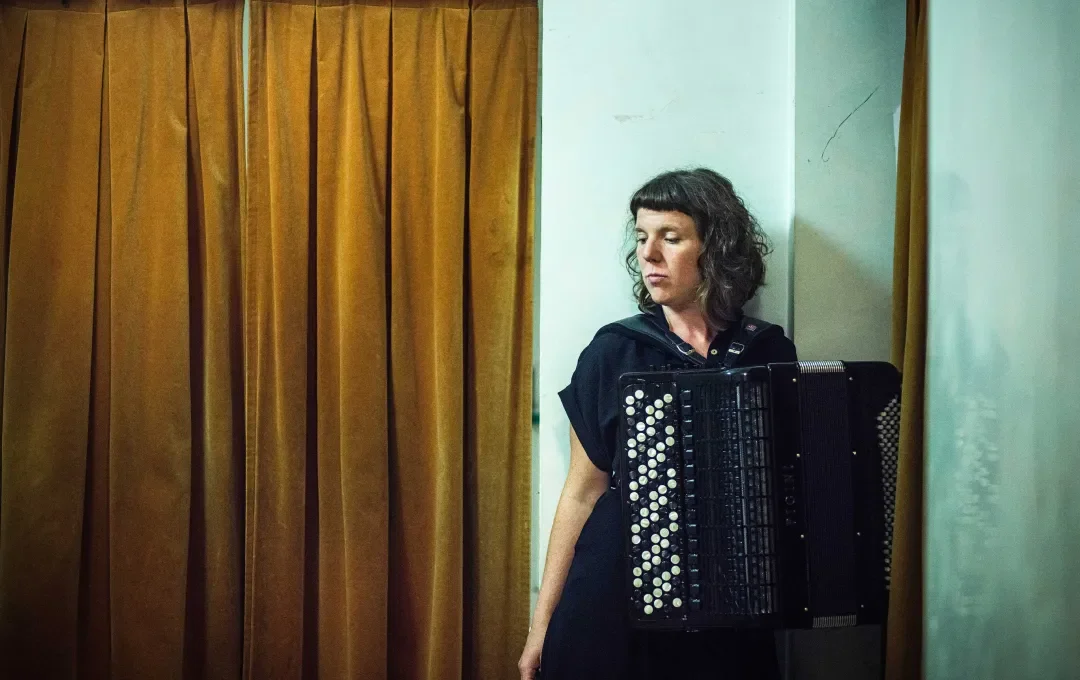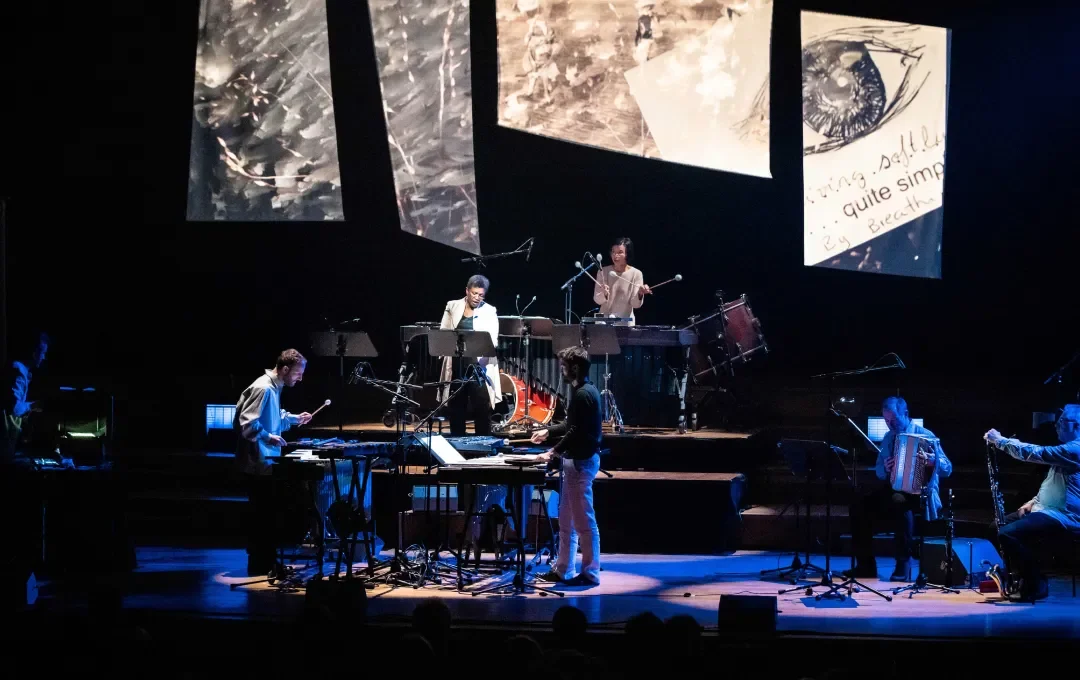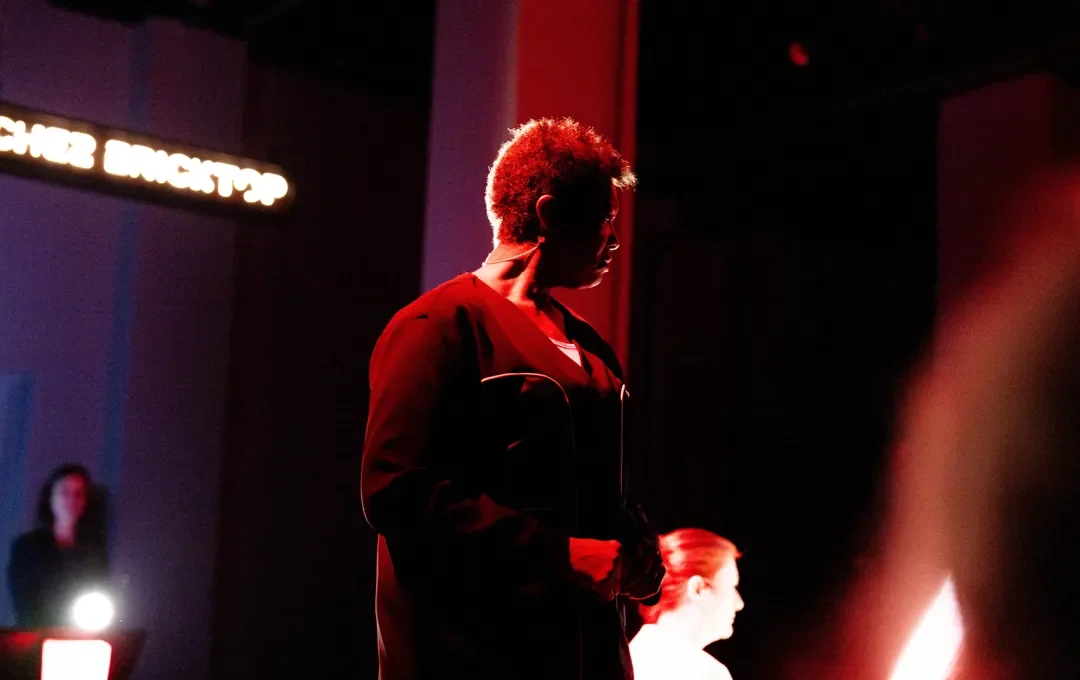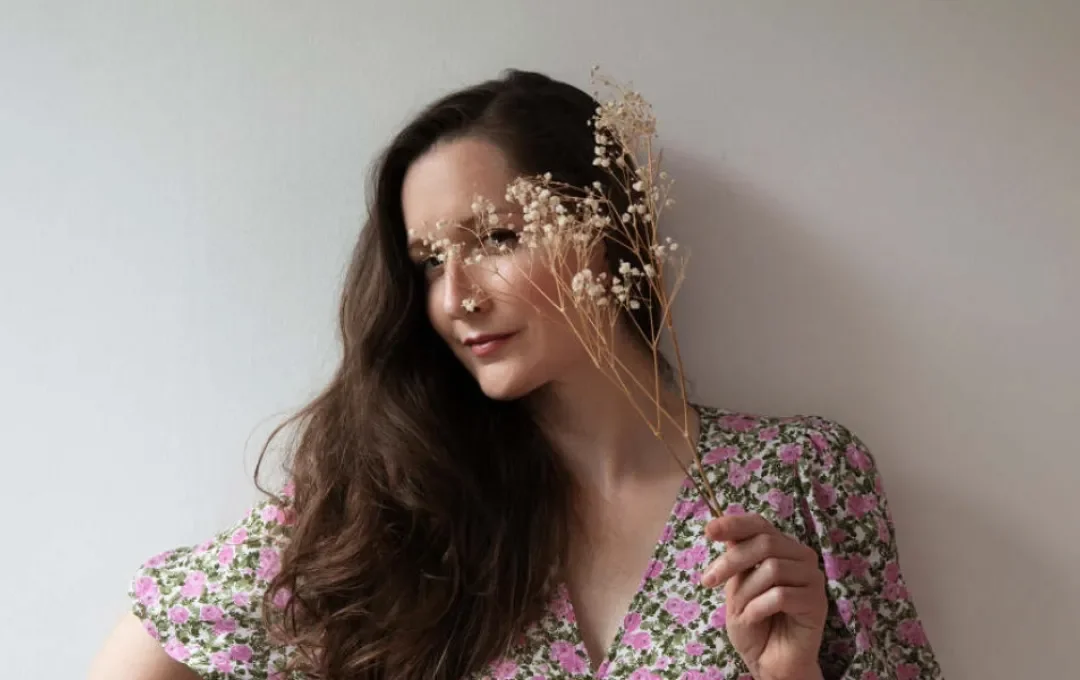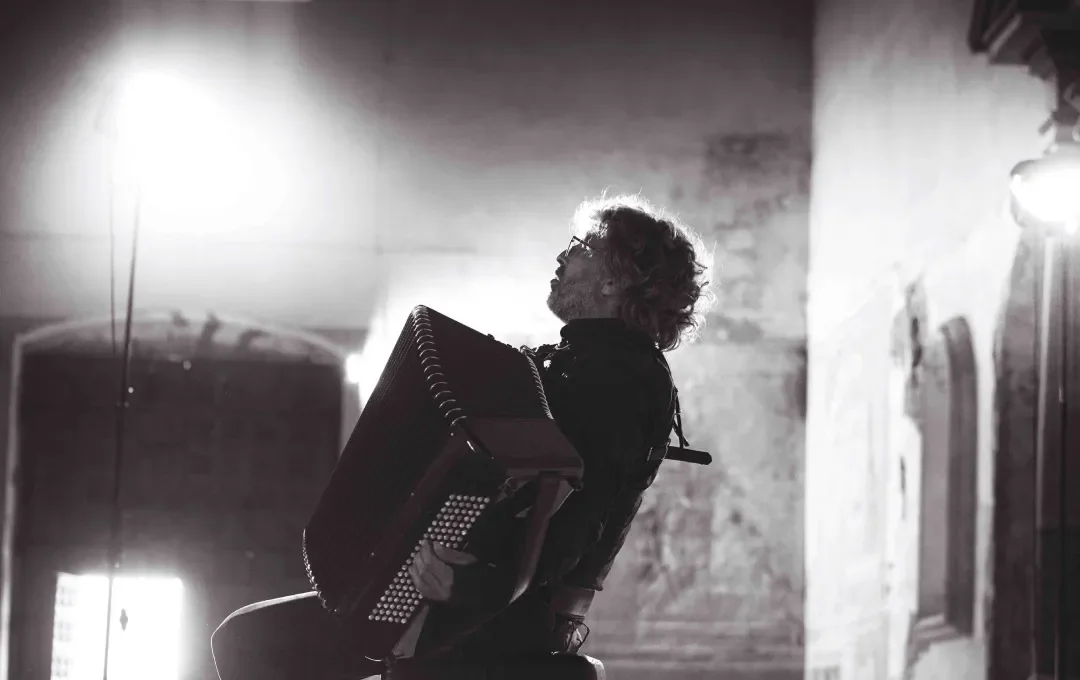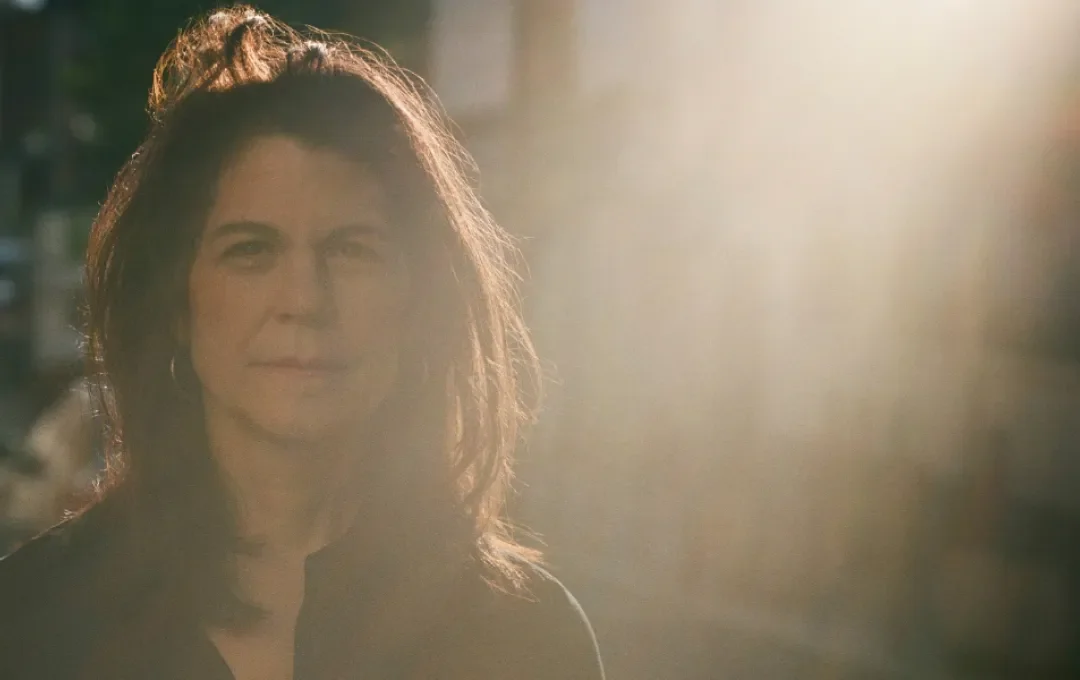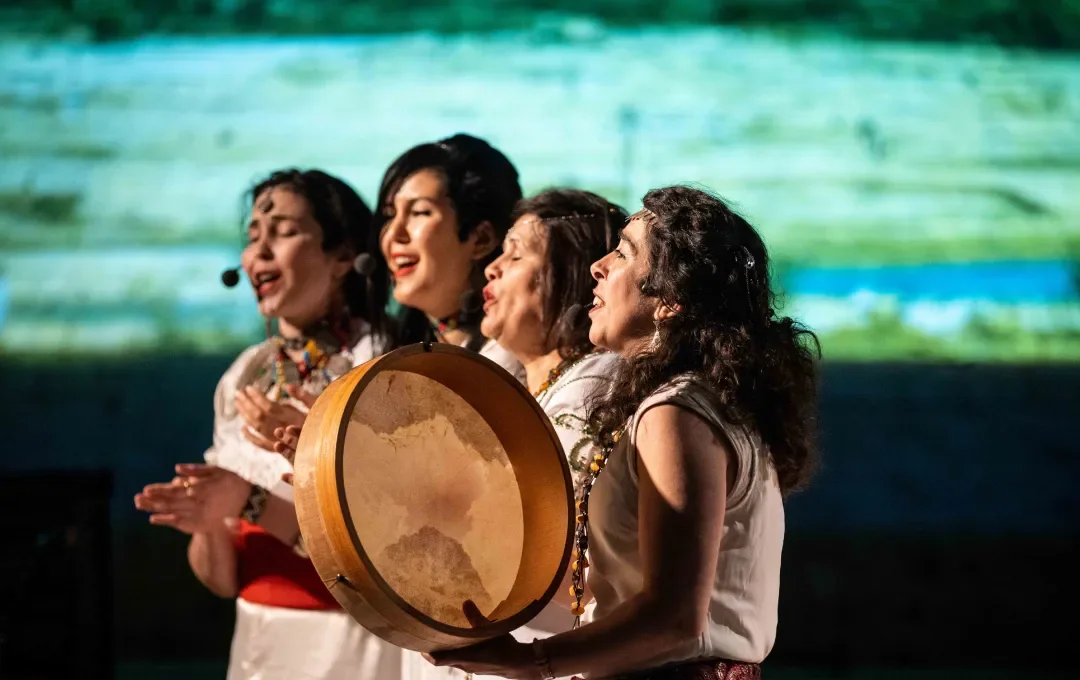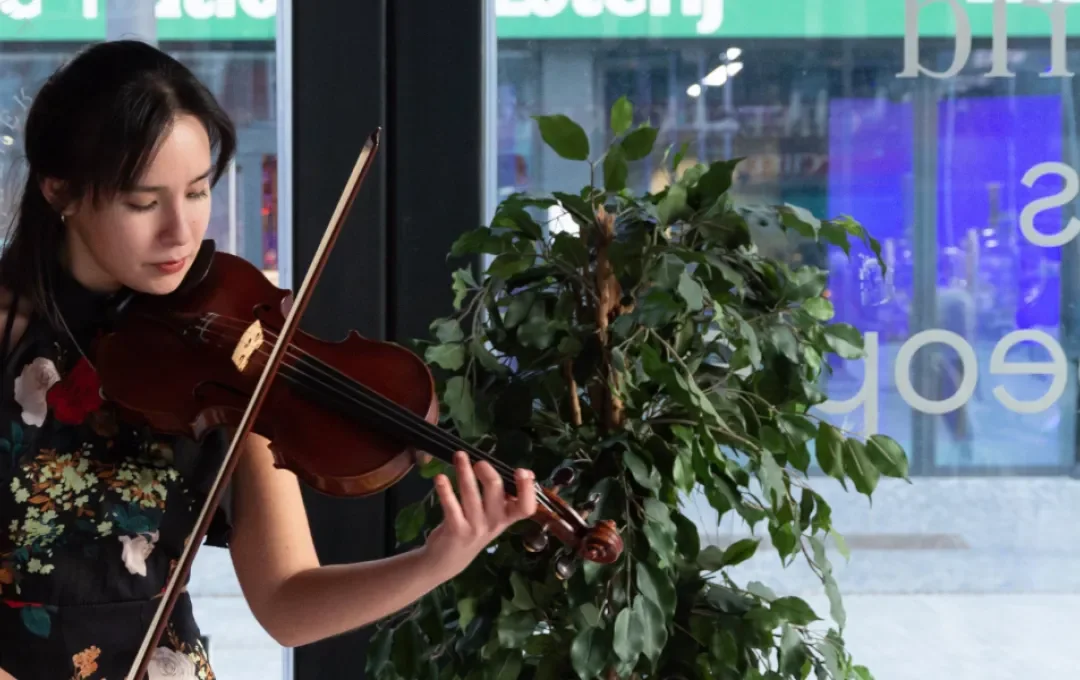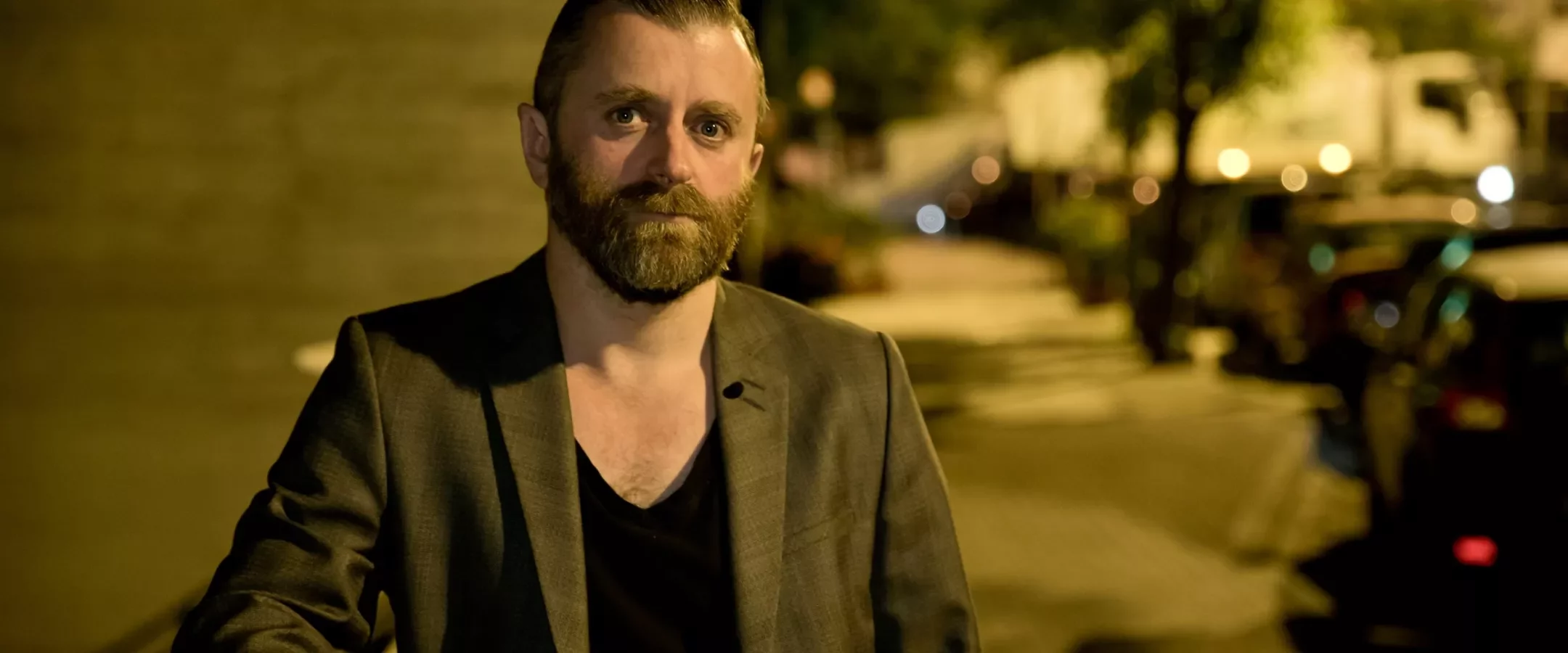
25 March 2023 will see the premiere of the Belgian performance PREY. A musical theatre performance about the horrifying insight that we are all food. Dramaturge Lalina Goddard spoke to theatre maker Kris Verdonck and composer Annelies Van Parys about our place in the food chain, the role of art and Japanese Noh theatre.
There is a common thread running through the performances that you have made in the past few years, Kris. I’m thinking of In Void, about the interchangeability of humans and machines, or Conversations at the end of the world, in which mankind is heading for an unavoidable catastrophe. PREY also puts an end to a world in which mankind takes centre stage.
Kris Verdonck: Yes, if you put it like that, then I’ve been making the same thing for more than 20 years (laughs). Personally I’d prefer to describe it as a quest for our place in the world. For PREY I immersed myself in the ideas of the Australian ecofeminist Val Plumwood. According to her, we are unable to care for nature because we are no longer part of it. When we die, then we push the body into a coffin and don’t look at it again. But Ms Plumwood says: that’s where our adventure begins. The insects start to eat away at us. Ultimately we again become part of the landscape, of the food chain.
A truly terrible event brought Val Plumwood to this conclusion…
Kris: One day Ms Plumwood was attacked in her canoe by one of the largest predators in the world, the saltwater crocodile. It pulled her under the water three times with its famous ‘death roll’. Afterwards she wrote that at that moment, she finally became at one with the world. The further the teeth sank into her body, the closer she felt to nature. When they shot the crocodile, she was vehemently opposed to it: “who was I to deny the crocodile its meal?”
Finding the high point of life in death: not the kind of thought guaranteed to cheer you up.
Kris: Ms Plumwood does indeed find the greatest positivity in death. It is only then that you are at one with the world. Then you understand how finite everything is. That you are a piece of meat, which serves to feed something else. In recent years, my performances have been subject to an interesting criticism: everything had become so dark that there was no longer any hope to be found. That is true, I have always very consciously brushed away all hope. Hope is easy, hope is an evasion to avoid confronting what is staring us in the face. We hope that everything will be all right, and while we are hoping, we do nothing.
I see you nodding in agreement, Annelies. Do you share that opinion?
Annelies Van Parys: Yes, I can strongly relate to what Kris is saying. I have been closely following the news about the climate and politics for years. For me there is no hope. We never honour our agreements. We replace every problem with a new one. You constantly read that change is coming. Covid-19 was meant to be a big turning point. We were going to do things differently, but now we are seeing even more pollution. We are not going to solve the ecological crisis.
Art can be a way of calling for action. But if all hope is gone, what about art?
Kris: For me the notion that art can save the world is a fallacy. But what art and in particular theatre can do is tell stories. A story can put things into perspective, offer insights, comfort. I believe that in this sense stories can trigger something.
Annelies: I completely agree with Kris. It certainly may not become activist art. Activism wants to prick your conscience, but as an artist I would prefer to ask questions or offer insights. So what art can do is to create empathy. You empathise with a story or character with which you would never otherwise have come into contact. I do not believe in an immediate change, but I do think that you can make people look at things in a different way.
What message, what story do you want to impart with PREY?
Kris: That we do not occupy an exclusive position. Everyone can be reduced to hunter and prey, and this truth binds us. If we realise that, we would perhaps behave rather less pretentiously towards our fellow inhabitants on earth. Just as Ms Plumwood criticised our Western culture, in which we put ourselves at the centre of the world, it was important to us to use a non-classical narrative form for this performance.
And this is how you arrived at Noh theatre?
Kris: Indeed. Noh theatre is a ritualistic Japanese theatre that developed in the fourteenth century and uses a fascinating form to tell stories. In fact, the same story is told from three different perspectives: first by the narrator, then by the I-figure, and finally in a dream. In the dream the I-figure takes off their mask, beneath which a different, monstrous mask appears that represents something abstract, such as revenge. At the end there is no catharsis, as is customary in Western stories. It is simply about what revenge is, without this being followed by a denouement or resolution.
Annelies: thanks to the Flemish Community, I enjoyed a two-month residency in Japan last summer and I was able to study Noh theatre. In their scores everything is noted, right down to the finest details. That is pretty bizarre, because it all actually sounds very improvised. Sometimes I thought I’d ended up at some kind of free jazz evening. Absolutely fascinating. I discovered so much that I thought I’d be able to use.
How did these experiences inspire you when composing?
Annelies: The nohkan (the Japanese Noh flute) has an exceptional timbre. I am also interested by the irregularity of the percussion score. The percussion is constantly in search of regularity but never quite achieves this. And in Noh they often use sliding pitches, microtonal melodies that I will explore with the electric guitar or viola. But to be absolutely clear: I do not want any kind of exoticism. I have been there, heard interesting things there, and am now trying to translate this into my own sound idiom.
Kris: It is indeed not our intention to imitate Noh, but rather to take it as a blueprint. If a Noh master were to come and see the performance, then I hope they’d say: I don’t see Noh in this.
In your piece, three women will take to the stage: actor Katelijne Damen, singer Anna Clare Hauf and dancer Mooni Van Tichel.
Kris: Three fantastic performers, who tell the same story one after another with three different media: word, music and dance. I am really looking forward to collaborating with them. I have known Mooni for some time. She created a very energetic solo in the middle of the Coronavirus pandemic, in the face of all that depression. Anna Clare Hauf is an impressive singer, someone who is unafraid to test the limits. Katelijne and I have been planning to do something together for a long time. And of course there is also Ictus, who I have known for so long, but have never had the opportunity to work with before. Exciting.
Annelies: For me this is pretty special, because my career actually started with Ictus. During a masterclass with them in 2001, I wrote a work that won the Flanders-Québec Prize the following year. Then I was launched. A reunion after more than 20 years
interview by Lalina Goddard, image © Stavros Petropoulos
